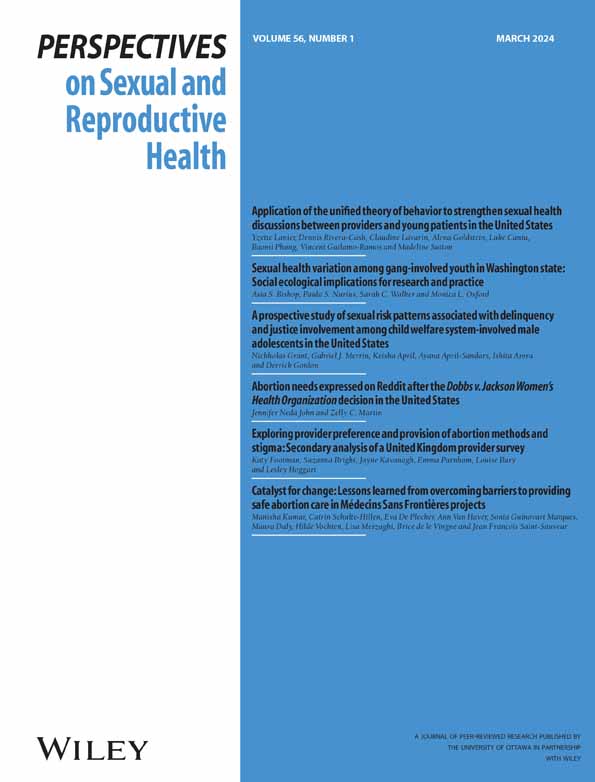Early Childbirth Among Foster Youth: A Latent Class Analysis to Determine Subgroups at Increased Risk.
IF 3.4
2区 医学
Q1 DEMOGRAPHY
引用次数: 12
Abstract
CONTEXT Research has documented elevated rates of early childbirth among adolescents who have spent time in foster care, and a better understanding is needed of the characteristics of vulnerable individuals and the circumstances of their time in care. METHODS California birth records for 1999-2010 were probabilistically linked to state child welfare service records spanning the same date range to identify females aged 12-19 who had spent time in foster care and had had a first birth before age 20. Latent class analysis was used to identify subgroups based on age at most recent entry into care, length of this stay and three indicators of placement instability. The probability of a first birth being related to class membership was assessed as a distal outcome, and differences across classes were assessed using chi-square tests. RESULTS Four distinct classes of foster youth were identified: Later Entry/High Instability (20% of individuals), Later Entry/Low Instability (43%), Earlier Entry/High Instability (12%) and Earlier Entry/Low Instability (25%). The probability of a first childbirth ranged from 31% (class 1) to 15% (class 4); classes 2 and 3 experienced moderate risk (23% and 24%, respectively). Two groups were further characterized by high rates of reentry into care, with 56% of class 1 and 41% of class 3 individuals experiencing more than one episode in care. CONCLUSIONS Identifiable subgroups of female foster youth are at heightened risk of early childbirth and may benefit from early intervention, enhanced support and access to reliable, ongoing sexual and reproductive health care.寄养青年早期分娩:确定风险增加亚组的潜在类别分析。
背景研究表明,在寄养家庭中度过一段时间的青少年中,早产率有所上升,需要更好地了解弱势个体的特征和他们在寄养期间的环境。方法将加州1999-2010年的出生记录与州儿童福利服务记录在同一日期范围内进行概率关联,以确定年龄在12-19岁之间的女性,这些女性曾在寄养中心度过一段时间,并且在20岁之前生育了第一胎。潜在分类分析用于根据最近进入护理的年龄、住院时间和安置不稳定性的三个指标确定亚组。首次生育与班级成员相关的概率被评估为远端结果,并使用卡方检验评估班级之间的差异。结果被鉴定出四种不同类型的寄养青年:后期/高度不稳定(20%),后期/低不稳定(43%),早期/高度不稳定(12%)和早期/低不稳定(25%)。首次分娩的概率从31%(第1类)到15%(第4类)不等;2级和3级的风险为中等(分别为23%和24%)。两组的进一步特征是高重返护理率,56%的1类和41%的3类个体在护理中经历了一次以上的发作。结论:可确定的女性寄养青年亚群存在较高的早育风险,可能受益于早期干预、加强支持以及获得可靠、持续的性健康和生殖健康保健。
本文章由计算机程序翻译,如有差异,请以英文原文为准。
求助全文
约1分钟内获得全文
求助全文
来源期刊
CiteScore
5.10
自引率
3.40%
发文量
24
期刊介绍:
Perspectives on Sexual and Reproductive Health provides the latest peer-reviewed, policy-relevant research and analysis on sexual and reproductive health and rights in the United States and other developed countries. For more than four decades, Perspectives has offered unique insights into how reproductive health issues relate to one another; how they are affected by policies and programs; and their implications for individuals and societies. Published four times a year, Perspectives on Sexual and Reproductive Health includes original research, special reports and commentaries on the latest developments in the field of sexual and reproductive health, as well as staff-written summaries of recent findings in the field.

 求助内容:
求助内容: 应助结果提醒方式:
应助结果提醒方式:


